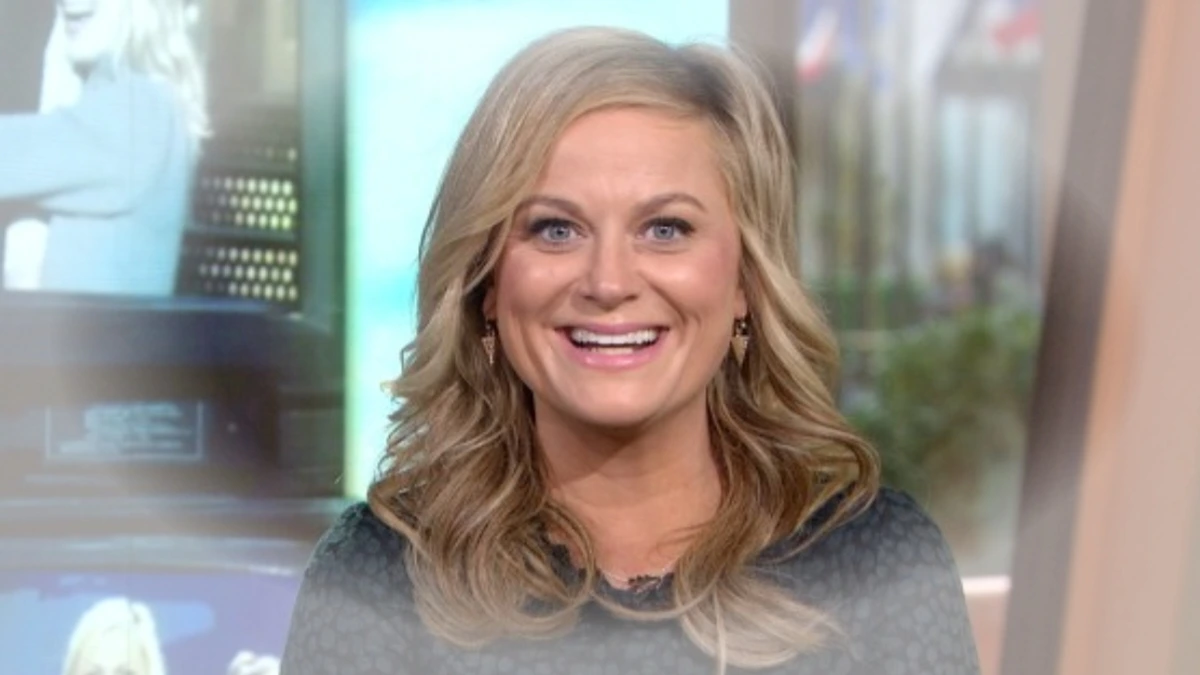NEW YORK — Comedian Amy Poehler returned to Saturday Night Live on Saturday to celebrate the show’s 50th anniversary, blending humor with a pointed jab at artificial intelligence.
During her opening monologue, she took aim at the emerging phenomenon of digital performers, joking, “You’ll never be able to write a joke, you stupid robot,” in reference to the newly popular AI actress Tilly Norwood.
The comment quickly gained traction online, reflecting both Poehler’s trademark wit and the entertainment industry’s growing anxiety over artificial intelligence in performance art.
Poehler opened her monologue by commemorating SNL’s first episode, which aired Oct. 11, 1975. “The world looked a lot different in 1975,” she said, recalling that women at the time couldn’t have credit cards.
“Now I’m kind of like, somebody take my credit card away,” she added, drawing laughter from the audience. The longtime SNL alum then pivoted to the topic of AI, referencing Tilly Norwood, a lifelike digital performer developed by tech studio Particle6 that has been making headlines across Hollywood.
“I remember watching SNL as a kid thinking, ‘I want to be an actress someday at least until they invent an AI actress who’s funnier and willing to do full frontal,’” Poehler joked.
Her humor continued with a mix of sincerity and satire. “If there’s a place that feels like home where you can go back to and laugh with your friends, consider yourself lucky,” she said.
“And to that little AI robot watching this show right now who dreams of being on this stage someday, I say to you, ‘Beep boop beep boop you’ll never be able to write a joke, you stupid robot.’”
Poehler’s comments touched a nerve in an industry still grappling with the implications of AI. The rise of digital performers like Tilly Norwood has sparked debate about creative authenticity, ethics, and job security for human actors.
“Comedy is one of the hardest art forms to replicate because it relies on instinct and lived experience,” said Dr. Mariah Kent, a media studies professor at Columbia University. “Amy Poehler’s joke captures that difference humor comes from humanity, not just data.”
But some technologists argue that AI tools could enhance, rather than replace, artistic collaboration. “AI performers are not competitors they’re instruments,” said Alex Ramirez, director of the Virtual Media Lab in Los Angeles.
The reaction to Amy Poehler’s AI actress comment shows how emotionally charged the issue has become. AI generated talent is increasingly visible across entertainment platforms.
According to a 2025 report by Creative Future Index, production studios using AI based visual actors have reduced costs by up to 75 percent. At the same time, opposition within the creative community is intensifying.
The Screen Actors Guild American Federation of Television and Radio Artists reaffirmed earlier this year that AI replicas cannot replace human performers without explicit consent and fair compensation.
Online engagement data shows why this debate matters Norwood’s debut in the short film Synthetic Souls drew more than one million views in its first week.
Meanwhile, social media reactions to Poehler’s SNL appearance generated hundreds of thousands of mentions within hours.
“Every technological leap in entertainment has sparked resistance,” said film historian Gerald Stone. “The difference now is that AI can perform, write, and learn so it feels less like a tool and more like competition.”
Inside the industry, Poehler’s remark earned both applause and unease. “Amy said what a lot of us are thinking,” said comedy writer Dana Fox. “Machines can imitate delivery, but not the life experience behind a punchline.”
Others took a more balanced view. “AI might never replace actors, but it can push the boundaries of what stories we tell,” said filmmaker Reuben Liu, who recently used generative AI to animate crowd scenes in an indie project.
Among viewers, reactions were mixed. One fan wrote on X, “Amy Poehler just roasted that AI harder than anyone on SNL in years.” Another responded, “If an AI actress can make me laugh, I’m fine with it comedy evolves.”
Experts expect the presence of AI performers to expand in film, television, and advertising. Analysts predict hybrid productions featuring both human and synthetic actors will become standard within five years.
Still, the cultural unease remains strong. Ethical questions persist around digital likeness rights, creative credit, and emotional authenticity. US lawmakers have begun reviewing potential regulations for AI-generated entertainment content.
“Moments like Poehler’s monologue will keep happening,” said Kent. “Humor is often the first way society processes new technology. It’s how we humanize our fears.”
Amy Poehler’s SNL monologue may have been designed for laughs, but it also served as commentary on a changing industry.
Her lighthearted jab at the AI actress Tilly Norwood captured both the absurdity and anxiety of a moment when art and algorithms increasingly intersect.
For now, the punchline still belongs to humans but the question her joke leaves behind is one Hollywood will keep asking: how long will it stay that way?
